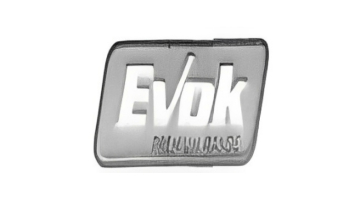The Bureau of Indian Standards (BIS) Certification is a mandatory compliance process that ensures products sold in India meet defined safety and quality benchmarks. As the national standards body of India, BIS is responsible for safeguarding consumer interests by enforcing strict quality checks through certification programs.
Assisted in completing 500+ successful BIS registrations Dedicated expert guidance at every step Affordable pricing with no hidden charges Smooth and fast application process Free consultation for import–export and compliance queries Over 20 years of industry expertise supporting 1,100+ businesses BIS certification acts as a mark of trust for consumers, proving that a product has undergone rigorous testing and complies with relevant Indian standards. It applies to a wide variety of goods, including electronic appliances, IT equipment, chemicals, food products, construction materials, and more. By adhering to BIS norms, manufacturers not only comply with Indian law but also strengthen their reputation in the marketplace. BIS certification is a conformity assessment scheme that validates whether a product fulfills Indian standards relating to safety, quality, and reliability. It is mandatory for many product categories before they can be imported, manufactured, or sold in India. Quality Assurance – Ensures products meet established benchmarks for performance and durability. Consumer Safety – Protects users from unsafe or defective products, reducing risks of accidents and hazards. Legal Compliance – Demonstrates adherence to Indian laws and prevents penalties, recalls, or trade restrictions. Market Access – Mandatory certification for certain products to be sold in India, especially in electronics and IT sectors. Consumer Trust – Enhances confidence by assuring quality and safety. Business Growth – Unlocks entry into the Indian market and expands sales opportunities. Competitive Edge – Certified manufacturers stand out from non-certified competitors. Brand Reputation – Boosts credibility and strengthens long-term customer relationships. Although BIS certification is voluntary for many products, the Indian Government makes it compulsory for specific categories in the interest of: These mandatory certifications are enforced through Quality Control Orders (QCOs) issued under the BIS Act, 2016. Application Submission – Manufacturer files the application with necessary documents. Document Review – BIS reviews compliance paperwork. Factory Inspection – A BIS officer visits the production unit. Sample Testing – Product samples are tested against applicable standards. Report & Approval – Test results are analyzed and certification is granted if compliant. Surveillance Audit – BIS conducts periodic inspections to ensure ongoing compliance. BIS certification is more than just a regulatory requirement—it’s a commitment to quality, safety, and consumer satisfaction. By securing BIS approval, manufacturers gain legal compliance, strengthen their brand image, and earn the trust of Indian consumers. For businesses, it opens doors to new markets while ensuring long-term growth with responsible practices. BIS CSR Registration | Procedure | Documents | Cost
Get BIS Registration (CRS) for Electronics & IT Products with Ease
Get connect with us
BIS Certification: Guaranteeing Quality, Safety & Trust
Introduction
What is BIS Certification?
Why BIS Certification is Important
Benefits of BIS Certification
Orders for Quality Control (QCOs)
Licensing Process for BIS Certification
Surveillance Procedure
Conclusion
Our Partners




















